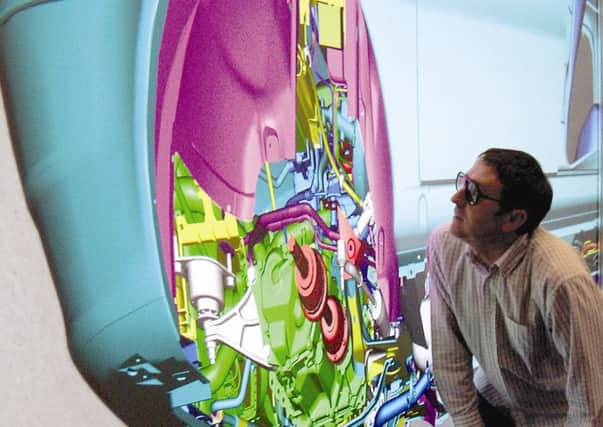'˜Brightest grads should work for Jaguar instead of building laundry apps' says top economist


Mark Gregory of accountancy giant EY claimed that Britain is suffering from a “digital divide” in which skilled are drifting towards the capital after leaving university.
He said a proper industrial strategy could create 700,000 new jobs in the UK with many in the North.
Advertisement
Hide AdAdvertisement
Hide AdSpeaking at a business event in Yorkshire, Mr Gregory said: “I think it is great that all these people are developing apps for home food delivery and laundry, but I am not sure our brightest and best should be gainfully employed doing that versus working with Jaguar in advanced manufacturing.”


A concerted effort to drive manufacturing growth in the UK would also create new demand and help increase exports, he said.
Mr Gregory said: “If you get five new big factories in and around Leeds, you get the support sector that services that.”
But he said there is no sign of Government supporting such a move and warned that the Northern Powerhouse initiative is in danger of failing.
Advertisement
Hide AdAdvertisement
Hide AdMr Gregory said: “What it can’t do is succeed independent of national policy. What we see today are conflicting national and regional policies.


“Examples of that would be austerity has a disproportionate effect in areas of the country where the public sector is more important or where dependence on welfare is highest. The classic example is the North East, which is exposed to both.
“For me, for the Northern Powerhouse to succeed, we need to move from monetary policy to proper industrial and economic policy that joins those pieces together.”
Mr Gregory questioned the lack of coordination in the Government’s approach to the devolution of funding powers to 38 cities and regions in England and said there is a risk that the stronger will become even stronger at the expense of the weaker.
Advertisement
Hide AdAdvertisement
Hide AdMr Gregory said: “If you don’t coordinate, you risk missing opportunities and not having supply chains built around these hubs.”
The monetary policy of keeping interest rates at a historic low of 0.5 per cent is creating bubbles as investors chase better returns, he added. Mr Gregory said: “My favourite example of that is the 10-year French sovereign bond rate is the lowest it has been since the French revolution.”
He added: “Can we normalise the economy is a question we don’t know the answer to at this point, where we just keep going on and on.
“You have to accept that monetary policy has not solved the problem, you do need - and maybe the Northern Powerhouse is part of that - a different approach.”
Advertisement
Hide AdAdvertisement
Hide AdMr Gregory also took issue with BBC reporting of this week’s economic volatility. Mr Gregory said: “They said the fall in global stock markets is already hitting the UK with job losses at Sheffield Forgemasters. That isn’t a link. The change in China’s stock market isn’t the reason that jobs at going in Sheffield. It is to do with events in China but it is a bit more sophisticated than that.”
The collapse in commodity prices linked to the slowdown in China has hit the UK steel industry and led to the loss of 20-30 per cent of its workforce, he added.
Sheffield Forgemasters announced that it was cutting 100 jobs as a result of a “storm” in the steel sector.